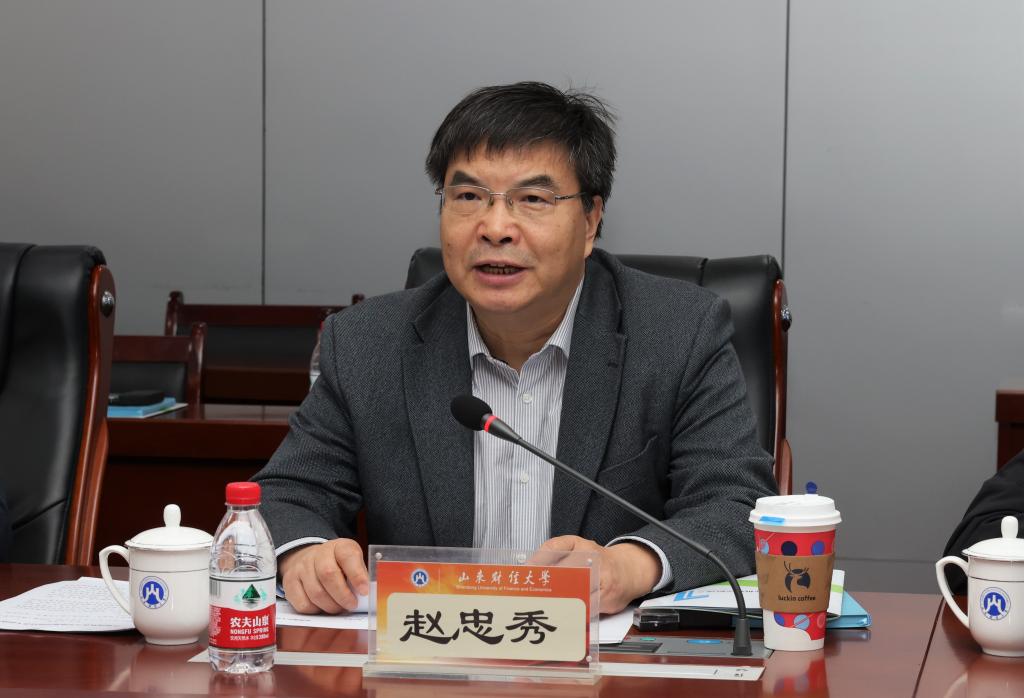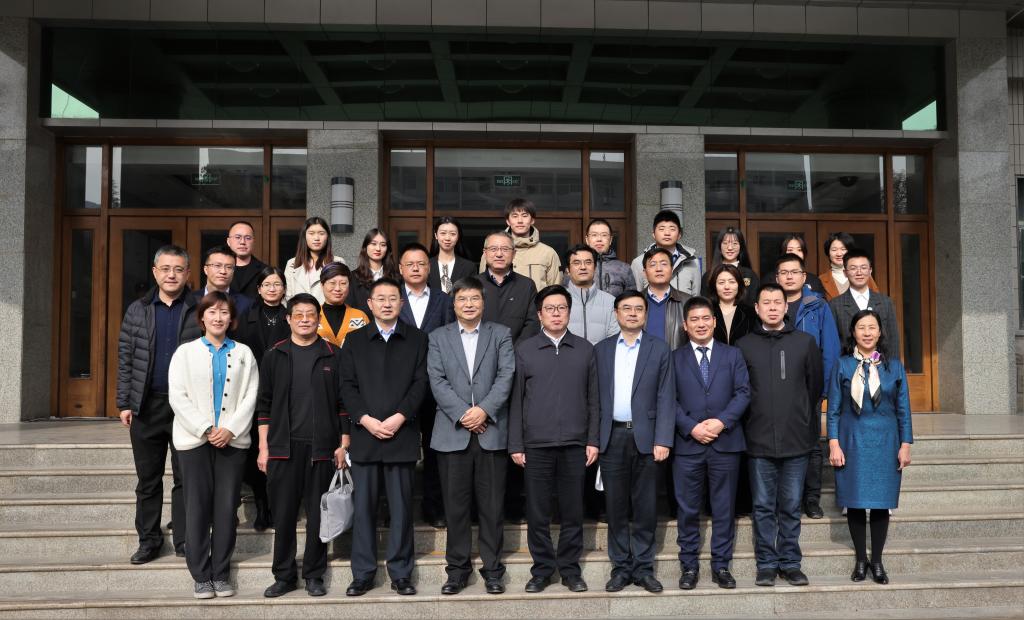On November 21, a seminar on low-carbon education and discipline construction was held in Yanshan Campus. Huang Jianzhong, Chairman of China Association of Electronic Energy Conservation Technology, Ding Zhenbo, Deputy Secretary of the Party Committee of Hualu Group and Secretary of the Party Committee and Chairman of the Board of Shandong Academy of Environmental Sciences, Xue Jinjin, Professor of International Economic Policy Research Center of Nagoya University, Japan, Qian Xiaojun, Vice President of Schwarzman College of Tsinghua University, Mi Hong, Professor of Zhejiang University, Yu Zhihong, Editor-in-Chief and President of Sustainable Development Guide, Director of Climate Change Department, Department of Ecology and Environment of Shandong Province Wu Hongyang, Vice Mayor of Zouping City, Shang Xianwen attended the meeting. President Zhao Zhongxiu attended the meeting and delivered a speech. Li Peng, Executive Secretary General of China Association of Electronic Energy Conservation Technology, presided over the meeting.

In his speech, Zhao Zhongxiu expressed his heartfelt thanks to colleagues and partners from all walks of life who have been caring for, supporting and helping Shandong University of Finance and Economics in the construction and development of low-carbon education. He pointed out that China International Low Carbon College is a new college full of vigor and infinite possibilities in the future. The College has made certain breakthroughs and progress in discipline construction, faculty development, talent training, joint research, curriculum development, social services, etc. Zhao Zhongxiu pointed out that it is the original intention and mission of China International Low Carbon College to develop low carbon education and help achieve the goal of "double carbon". The college will continue to uphold the people-oriented philosophy, adhere to the open and innovative idea of running the college, continue to forge ahead and strive for improvement, and run to a green and low-carbon future hand in hand with the community.
In his speech, Huang Jianzhong expressed his congratulations on the first anniversary of the establishment of China International Low Carbon College. He said that the establishment of China International Low Carbon College is timely as education is the foundation of low-carbon development. In the past year, the Low Carbon Academy has met the needs of the times and achieved fruitful results. I hope that the Low Carbon College will continue to move forward and create greater social value in the future, and contribute to promoting the high-quality economic and social development of Shandong Province and realizing the goal of "double carbon" in China. Professor Wang Jingmin reported on the work of China International Low Carbon College in the past year from five aspects: discipline construction, talent training, social services, publicity work and future planning. Qian Xiaojun, Xue Jinan and Mi Hong delivered keynote speeches entitled "Management Practices and Challenges of Enterprises under the Double Carbon Target", "International Competition and Cooperation in Climate Governance and Carbon Neutrality" and "Analysis of the Contribution of China's Urban and Rural Population and Pension Policy Optimization to the Achievement of the Double Carbon Target" respectively.
During the meeting, leaders, experts and scholars, and representatives of enterprises discussed and exchanged ideas on low-carbon education, discipline construction and social services, and made practical suggestions on the construction and development of the college and the construction of the discipline of low-carbon economy and management.

The seminar was co-organized by Shandong University of Finance and Economics, China Electronic Energy Conservation Technology Association, China Low Carbon Economic Development Promotion Association and Carbon Label Industry Innovation Alliance, and organized by China International Low Carbon College. Representatives from relevant functional departments and colleges of the university, teachers and students, and representatives from relevant enterprises attended the offline meeting. The conference was also broadcasted live through the online platform of "Low Carbon City", which was watched by 16,000 people online.